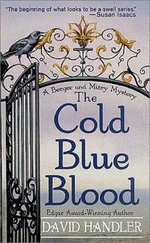I think Lily asked me then, “Does that make sense?” I don’t remember answering. But I do remember what she said next.
“We stayed on and on in Anchorage, Gurley and I. We didn’t leave. And any idea I had about finding Saburo faded, and faded, until I could no longer see his face anymore. And then his face started to be replaced with another. I studied it each night in my dreams, and each night it came closer and closer, until one night I saw who it was. I woke up and saw him there beside me: Gurley.”
By now, I had opened my eyes, but I wish I hadn’t. Then I could have imagined some look of disgust on her face when she said the name Gurley , but instead I had to watch her as tears came to her eyes, and listen as she went on: “You see why I have to tell it to you this way? Why I can’t simply say that I fell in love with him? Because I had loved another man. And we’d had a baby a boy and we’d lost him, and then I lost Saburo, and then there was this other man, so strong and proud, and he was going to help me.”
It wasn’t love, she said. That’s not wishful revising, at least not on my part: that’s what she said. She said it wasn’t anything she could really even put into words. But whatever the connection was, she needed it, she needed him. All the while, she told herself that the need sprang from her need to find Saburo, but eventually she began to wonder if that was true.
Gurley had begun to talk about life after the war, together. About some property he’d bought while posted in California, north of San Francisco. It was near the ocean, part of an old ranch. There was a hill you could stand on and see-well, everything. That’s where the house would go. Big and broad with a long porch that would ramble around the whole of the first floor. From there, you’d be able to see the land unfurling all the way down to the water, where the ocean would carry the eye on to the horizon and the clouds above. Such clouds, Gurley had told her, such a sun: the pleasures of the sky there were so vast. How like Gurley, I thought, to think that some small panorama he’d purchased might sell a girl who’d grown up beneath the world’s biggest sky. Still, I could hear him: “Such a sky as would befit a century’s worth of painters! Imagine, heaven’s cloak…” And what is there to say, really, against that, or against him? Decades on, I’m not sure I can tell you precisely what the sky looked like above Mary Star of the Sea, or what the walk from the orphanage to the ocean looked like. But I can remember that imaginary house of Gurley’s. I can see them both there; I can see every blade of grass, every window, every flower, every cloud above.
I told Lily it sounded beautiful, and she shook her head quickly.
“That’s why I was so glad you came, Louis. I was falling for him, I had fallen for him-so much of me still has.”
My heart swelled, is that the word? I was precisely the knight I had taken myself for.
“When you came, you were so different. So young.” We smiled. “And so, so frightened. So unlike anyone else who’d ever come to that dingy little office. I felt it immediately. And you frightened me. You’d been sent, I knew that right away. Not like Gurley You’d been sent to remind me.”
“To what?”
“To-to-rescue me. To shame me. To remind me to-stop crying. To go home, to find my son, his father. Saburo.”
Things were going horribly wrong. I’d been sent to rescue her, but for myself. I tried to protest: “Lily, I-no one sent me.”
“No one you knew, but you knew , somehow, didn’t you?” she said.
Lily, I loved you: but I didn’t say it. The words were there, but all I could do was cough. “You knew” she went on, “that I didn’t need a lover, that I needed a friend.”
If I coughed again, if I even opened my mouth to speak, I knew I might lose whatever was in my stomach.
“You understand,” said Lily, relieved.
I pointed to the door.
“Gurley doesn’t, but you do. I don’t even understand. I don’t even understand what I feel about Gurley-that’s why I came here, out here, where I was born, where I can understand things better.” I knocked on the door for the guard to let me out. “The sooner we go, Louis, the better!” she called after me. The guard smirked. I wanted to slap him, but could barely manage to nod as I stumbled down the corridor.
I kept walking until I reached the riverbank. I found our boat, a long, broad skiff, equipped with five days’ worth of food, gallons of gas and water, tents, and for appearance’s sake, a crate of bomb disposal equipment-tools, plastic explosives, blasting wire, and a little ten-cap hell box. There was one other small item, too, one that I’d secreted from Gurley’s office and now kept hidden in a knapsack. I wouldn’t fail Lily this time: I’d brought Saburo’s map.
I looked it all over and then I sat, the good friend. I stared across the river and listened for some sign of Gurley-the whine of a boat, the crack of a gunshot.
I’VE SEEN RONNIE FIRE A GUN ONLY ONCE, BUT IT WAS TO great effect.
A couple had lost their child. A tiny child. A baby girl, who, like Lily’s child, was stillborn. But the baby was terribly early, terribly small, and the whole thing so horrifying that when the couple was asked immediately afterward if they’d like the hospital to “take care of things,” they numbly agreed without knowing what they were agreeing to.
The hospital cremated the body.
They found this out a few days later, when the husband returned to claim the body. He was told it had been cremated; shocked, he asked for the remains; alarmed, the hospital told him there weren’t any. Our bodies are mostly water, the man was told, and tiny babies like yours-they sometimes simply evaporate. There’s nothing left.
The man returned to his wife, and then, beyond grief, even past rage, the two found me. I did what I could-I arranged a memorial service for their child, I offered to secure an empty burial plot where they could at least place a marker. But they wanted more.
So I summoned Ronnie. He talked with me, and then with the couple, and then he told them to meet him outside the hospital in two days’ time, at 5 P.M.
Though it was July, the sky had gone dark early black with threatening clouds. The first drops landed on my windshield as I parked. I found Ronnie and the couple in the small play yard outside the hospital, and watched as he threw a handful of ashes north, then south, then east and west. The couple looked on, stupefied.
This sounds like a myth. It is not; I was there. (Though saying so makes it sound all the more mythic, I know.)
Ronnie dusted his hands of the ashes and reached into a small pouch. I expected him to remove some amulet or tiny mask; instead, he removed an old, rusted.38. (It may have been mine; the parishioners had given one to me “for my safety,” but I’d hidden or lost it and it had been missing for years.)
The wife looked terrified and grabbed her husband. The husband maintained a kind of crumbling defiance: shoot me, his face said. Shoot us both. We no longer want to live.
But Ronnie shot at God instead. He raised the gun over his head, shouted angrily, and fired. It’s hard to describe how perfect an act this was, but the evidence was on the couple’s faces, first the husband’s, then the wife’s: here was the angry retort they’d wanted to send to heaven, futile as an oath, but so completely satisfying.
Ronnie wasn’t finished, though. Or heaven wasn’t.
The rain began. Slowly, and then heavier and heavier. The couple started to move toward shelter, but Ronnie told them to stay. They looked puzzled, sad, depleted. Ronnie held his face to the sky, soaking it. Then, looking at the couple, he slowly wiped his face and presented them his hands, water pooling in the creases of his palms.
Читать дальше












